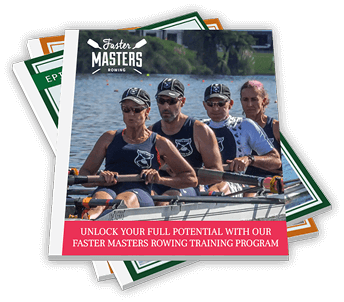Rowing can create harmony at home or rowing can rock the domestic boat. For a masters racer who regularly competes in addition to a busy work schedule, time-blocking to give enough attention to a non-rowing partner has its challenges. If the scales are not balanced, all-day weekend regattas, early morning practices, long rows, mixed boat partners, travel, and a focus on your training can leave a spouse feeling ignored or resentful. An endurance sport like ours is time demanding so the extra demands of racing season can make it even harder to combine your interests with your collective needs as a couple. Being able to reach a common ground and resolve conflicts will go a long way to reduce frustration for the non-rowers and keep your lives in sync which, in the long run, will help your boat go faster.
John Gottman, PhD, author of Masters of Marriage vs. Disasters of Marriage, cites that successful couples have three things in common:
- They know a lot about each other’s opinions, needs, and their perspective.
- They maintain respect and admiration for each other.
- They maintain a high ratio of “emotional deposits” (thoughtful acts) to “emotional withdrawals” (self-centered acts).
According to Gottman, the highest predictor of a failed relationship is a low ratio of thoughtful acts. For example, to your non-rowing partner, an early morning long row on a Sunday morning might be considered an emotional withdrawal. But its negativity can be canceled out by leaving a nice note on the table to say good morning, bringing home their favourite coffee, or telling them you will be home at a certain time and you plan lunch at their favourite restaurant. Gottman says, surprisingly, it doesn’t matter how big or small the emotional deposits are as long as there is a large ratio compared to emotional withdrawals. So what is the right ratio? Gottman suggests the magic number is at least five emotional deposits for every emotional withdrawal.

So how does one restore flow to a rowing-stressed relationship?
One strategy is to give your partner opportunities for supportive roles such as the travel planner, the race photographer, or coordinating your gym schedules. If a regatta is far away or in an interesting place, you can turn the trip into a holiday and spend some time together after the event. Including your partner helps make your rowing become a shared experience and your partner can develop a better appreciation of all that goes into you performing well. Because you do want to do well.
Communication is key to keeping life at home on keel
The first step is to get your partner on the same page. Express your feelings of accomplishment, your goals, and how great you feel after your row. List your positives: I weigh 2kgs less, I eat healthier, I am happier so I perform better at my job, I enjoy being good at something. The second step is to find out what bothers your spouse about your involvement in rowing. Do you fall asleep right after dinner? Is care of the children disproportionate on the weekends? Does your husband want to go out to a show one night of the weekend but you always have to go to bed early? The third step is to clear up the issues that knock your relationship off kilter and work together to reduce those emotional withdrawals and build up the emotional deposits on a daily basis.
Here are some strategies to try:
- Create an important role for the non-rower to get involved in the rowing club or some aspect of your competitive life.
- Make a point to train or exercise together; consider running, cycling, hiking, or kayaking.
- Try rowing a double making the rows more recreational to explore the river rather than be a training session.
- Show appreciation for the support your spouse gives you- “I couldn’t have won that race without your power thoughts. What can I do for you when I get home?”
- If you have been away for a weekend of racing, plan the next weekend to go do something special.
- During the off-season put more focus on the interests of your spouse – perhaps it is shifting to another sport, more social events, or simply more time together at home pursuing other interests.
- Erg at home so you can train easily without always being away for long periods of time.
- When your training hours start to ramp up again be attentive to any strains starting to creep into your relationship. Aim to correct them right away putting more emotional deposits into your account.
- If your chores at home don’t get done during heavy training times get the kid next door to mow your lawn or rake the leaves so your household stays in order.
- Attempt to train during times that cause the least strain on the family, mornings may work better for many than evening sessions; it depends on your daily pattern.
- Reserve time to spend with your partner; make one evening each week your night to go to dinner and stick to it regardless of your training schedule.
Stay socially active-individually so you both develop your talents and have experiences to share and discuss. If your relationship is fundamentally healthy you will be able to work together to support each other’s interests and goals. Paying attention to feelings, honesty, openness, and genuine interest in each other’s well-being will help rowing be a positive factor in your relationship. If training has to be scaled back, focus on quality versus quantity.
Stay flexible because in the end it is all about equilibrium. Maintaining a positive emotional balance with those closest to you will help you manage the intensity of competition with the ever-important down time to regenerate and recharge between events and seasons.
By Marlene Royle, Faster Masters Rowing

